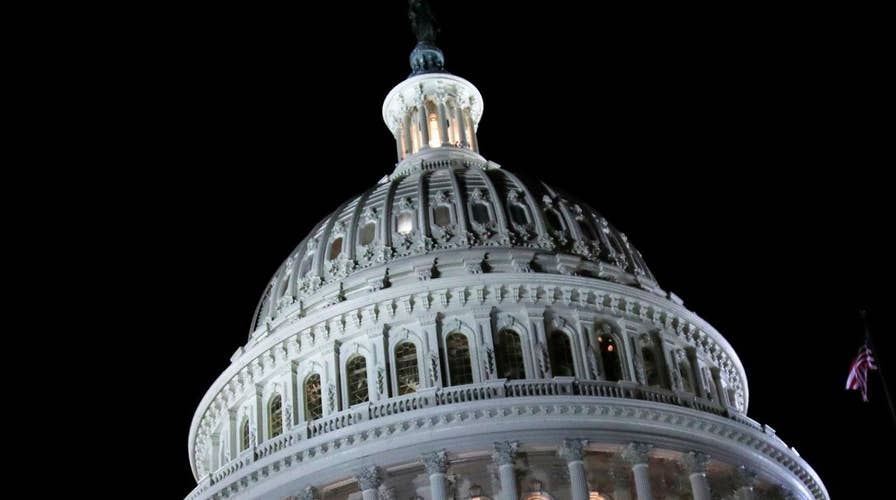Over the objections of the American Civil Liberties Union (ACLU) and an explosive dissent from an Obama-appointed judge, a federal appeals court on Thursday upheld the constitutionality of a Kentucky law requiring doctors to perform ultrasounds and show fetal images to patients before abortions.
The case comes in the midst of a new nationwide conversation on abortion. Among the high points in that dialogue: a push by congressional Republicans to protect infants who survive abortions, a radio interview in which Virginia's Democrat governor seemingly endorsed infanticide in some cases, and the release of an anti-abortion drama called "Unplanned."
The 2-1 ruling Thursday by a 6th U.S. Circuit Court of Appeals panel was a major victory for Kentucky's Republican Gov. Matt Bevin. The law was passed in 2017, when Republicans took control of the state's legislature, and was quickly challenged by Kentucky's sole remaining abortion clinic.
The legislation specifically requires doctors to describe an ultrasound while the pregnant woman listens to the fetal heartbeat, although women can avert their eyes and ask to have the sound turned off.
The majority opinion, written by Trump appointee Judge John Bush and joined by Reagan appointee Alan Eugene Norris, said the Kentucky law did not step on doctors' First Amendment free speech rights.
Bush said the legislation complied with the Supreme Court's seminal 1992 ruling in Planned Parenthood v. Casey, which established that states can enact laws necessary to obtain women's "informed consent" prior to an abortion -- as long as those laws don't pose an "undue burden" on the abortion right.

In this July 10, 2018, photo, protesters hold signs supporting Planned Parenthood in Seattle. (AP Photo/Ted S. Warren, File)
"Does [the law] relate to a medical procedure? Yes — abortion," Bush wrote. "Are the mandated disclosures truthful and not misleading? Yes—no one argues that the heartbeat, sonogram, or its description is false or misleading. We have previously held that similar information conveys objective medical facts. ... That leaves the final question: Are the mandated disclosures relevant to the patient’s decision whether to abort unborn life? The Supreme Court’s abortion precedent answers this question for us."
Bush specifically said that ultrasound images were "relevant" to the decision as to whether to terminate what he explicitly called "unborn life."
"The information conveyed by an ultrasound image, its description, and the audible beating fetal heart gives a patient greater knowledge of the unborn life inside her," Bush said. "This also inherently provides the patient with more knowledge about the effect of an abortion procedure: it shows her what, or whom, she is consenting to terminate. That this information might persuade a woman to change her mind does not render it suspect under the First Amendment. It just means that it is pertinent to her decision-making."
The Kentucky law had been enjoined in a lower court, prompting Bevin to appeal. The ACLU, which took on the suit on behalf of the EMW Women's Surgical Center, argued that the Kentucky law was essentially identical to a law struck down by a separate circuit court in North Carolina 2014.
Although rulings by other circuit courts are not binding on counterpart courts in the absence of a clear ruling by the Supreme Court, they can provide persuasive arguments. Several other states have existing laws either requiring ultrasounds be performed, or that the option for an ultrasound is clearly given.
In a fiery dissent, Obama-appoined Judge Bernice Donald charged that the law had "no basis in the practice of medicine" and, under Supreme Court precedent, should therefore be subjected to heightened scrutiny.
Donald specifically objected to Bush's use of Planned Parenthood v. Casey's undue-burden framework to address the ACLU's First Amendment arguments, which involve a separate area of law. The Kentucky law regulates speech, Donald said, and should be assessed in those terms -- not as a barrier to abortion.
Bush's majority opinion addressed Donald's objections, noting that "although much of the analysis in Casey addressed the plaintiffs’ undue-burden claim, the joint opinion’s First Amendment holding built upon its conclusion that the mandated informed consent disclosures in that case met the criteria of being truthful, non-misleading, and relevant."
Contrary to the dissent's suggestion "that we have 'focused on the wrong provision of the Constitution,'" Bush wrote, "indeed we do address the relevant provision — the First Amendment."
The Kentucky case seemed destined for the Supreme Court. In February, Chief Justice John Roberts joined the Supreme Court's liberal wing in temporarily blocking a Louisiana law that would have placed other restrictions on abortion clinics, in the high court's first major ruling on abortion since the confirmation of Associate Justice Brett Kavanaugh.
The ruling came as Roberts, who was appointed by President George W. Bush, has increasingly and deliberately sought to present the federal judiciary as nonpartisan, amid a flurry of attacks from progressive groups arguing that the Supreme Court's new conservative majority imperils the country. Last year, in a highly unusual statement, Roberts rebuked President Trump for criticizing partisanship in the federal judiciary.














































